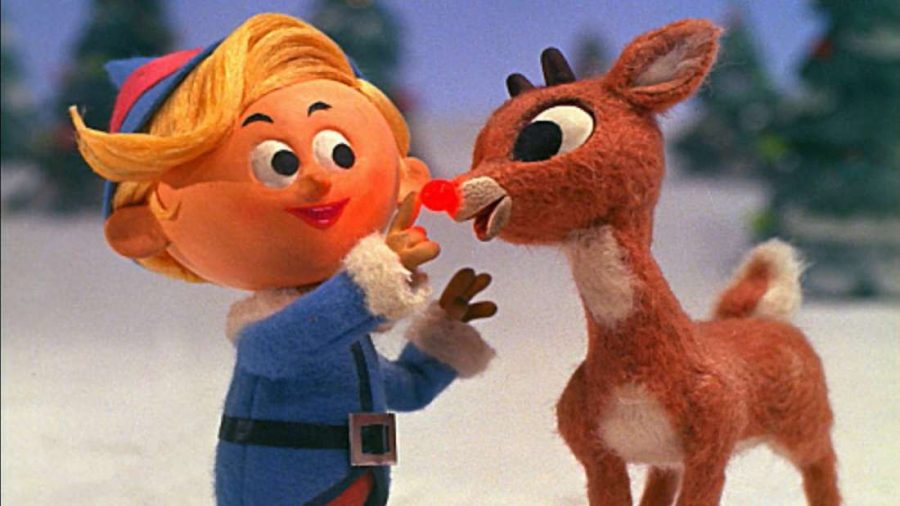TV Holiday Specials Criticized as Social Norms Change
With the holiday season winding down as the new year approaches, we have recently witnessed social criticisms of the seasonal staples that have become as traditional as Christmas carols and gift-giving: the television holiday specials. For years, these holiday specials have transported adults back into their childhood and have inspired new generations with their moral values and life-long lessons. But recently, many of these old classics have been put under the eye of scrutiny as more and more people have been affected by movements such as #MeToo as society progresses to one less sexually and racially biased than it was in years’ past.
For example, the timeless classic “A Charlie Brown Thanksgiving” has recently been hit with criticism over the use of the film’s only black character, Franklin. The movie has been cited as being racist as the animators of the film placed Franklin, the only black friend of the Charlie Brown friend group, alone on one side of the Thanksgiving table in a rickedy, old lawn chair. Meanwhile, Franklin’s friends (Charlie Brown and Peppermint Patty) were located on the opposite side of the table hunched together in real chairs as they feasted on their Thanksgiving meal. At a later point in the film, Franklin even topples over in his half-broken chair.
“They give our friend the busted chair and won’t even sit on the same side of the table, more proof that Charlie Brown and his cohorts are RACIST,” commented Twitter user @mwizzy128.
But even with all the growing criticism, some defend the timeless classic highlighting that its creator Charles Schultz fought to add Franklin to the cast amidst the racism of the 60s and 70s. The iconic TV special was released on CBS in 1973. At the time, the inclusion of a black character in a predominately white dominated children’s’ program would have been seen as revolutionary, as the Civil Rights Act of 1964 prohibiting segregation in all states of the U.S. had only just gone into effect a few years before the special came out.
California radio talk show host Mark Larson took to Twitter to express his supportive view on the classic special, tweeting, “Seriously please get some historical context. Charles M. Schultz was a trailblazer and bucked racism in those days by adding Franklin to reflect the issue…and challenging what was then going on in society.”
Attacks on Christmas specials such as “Rudolph the Red-Nosed Reindeer” have also fired up in recent weeks. The HuffPost made national headlines when it posted a video claiming that the film is “bigoted” and features bullying and sexism. The video suggests that it was problematic that Rudolph’s father verbally abused him into wearing a fake nose so that he could fit in with all the other reindeers.
Some critics even point the film as being sexist. At one point, Rudolph’s father refuses to let Rudolph’s mother search for their son. “No, this is man’s work,” Donner advises her.
But HuffPost’s release of this video and the accusations it has against the forever classic has been met with striking criticism. “Rudolph was about a reindeer who showed others that being different is a good thing. It showed viewers that just because you may be different doesn’t mean you can’t overcome difficult obstacles in life,” one Twitter user rebuked.
And it’s not just TV specials that have come under attack. A radio station in Ohio recently removed the 1944 holiday song “Baby, It’s Cold Outside” from its playlist after determining that its lyrics are “very manipulative and wrong.”
The song was first penned by Frank Loesser in 1944 as a duet for him to sing with his wife at parties. Since then, the duet has become an lasting holiday classic, sung by celebrities from Dolly Parton and Rod Stewart to Michael Bublé and Idina Menzel. The Ohio station noted the song was written in a “different time,” claiming the #MeToo movement was at the forefront of its decision to remove it as the song contains lyrics sung by the woman in the song pleading with her male counterpart, “no, no, no” and asking “what’s in this drink?”
Others say the allegations against the song are ridiculous. “I think it would be good if people looked at the song in the context of the time,” says Loesser’s daughter Susan in a recent interview with NBC News. “People used to say ‘what’s in this drink’ as a joke. You know, ‘this drink is going straight to my head so what’s in this drink?’ Back then it didn’t mean you drugged me.”
The trend of criticizing of timeless classics continues with a movie that recently made headlines: The Little Mermaid. A male a cappella group at Princeton University pulled the song “Kiss the Girl” from their performances. The student newspaper at Princeton claimed the song’s lyrics and the group’s onstage traditions promoted “toxic masculinity.”
Some have even went as far as to say that in the scene where the iconic song is played, Prince Eric leaned in to kiss a mute Ariel without asking for her permission.“The song launches a heteronormative attack on women’s right to oppose the romantic and sexual liberties taken by men, further inundating the listener with themes of toxic masculinity,” wrote newspaper student Noa Wollstein in her column in Princeton University’s student newspaper The Daily Princetonian.
In the past, other classic movies and TV shows have been criticized for being racist or sexist. For example, the famous cartoon television show Tom and Jerry was accused of featuring racist stereotyping in the depiction of a black maid. In fact, the production company that produced the show, Warner Bros., released a caution several years ago that one of its seasons depicted some ethnic and racial prejudices that used to be commonplace in American society.
When all’s said and done, in this age of #MeToo, it seems no movie, song, or even TV show is safe from being scrutinized no matter how cherished it might be.











